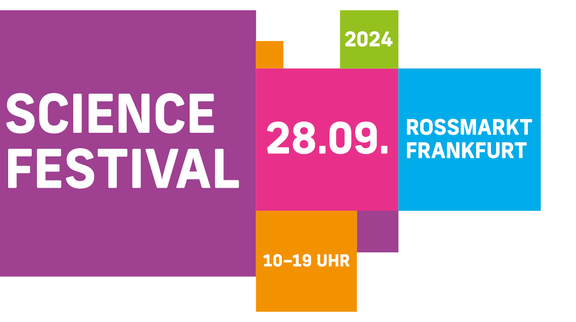News

Clear the stage for the „Frankfurt Alliance“
On Saturday, September 28, the first Science Festival Frankfurt will take place at Roßmarkt in Frankfurt. Science will come alive for young and old alike: on stage at science slams, debates, interactive shows, and short lectures, as well as in the science tents of the individual regional institutions. In the ATHENE tent, you can learn how to recognize and expose deep fakes. Children can try their hand at programming Sphero robots.
Below you will find the press release for the Frankfurt Science Festival on September 28, 2024:
At the Roßmarkt, the new science network invites you to marvel, ask questions, discuss, and participate in a science festival
FRANKFURT AM MAIN. In January 2024, 16 Frankfurt research institutions joined forces to form the “Frankfurt Alliance.” To highlight the strength and diversity of research in the science city of Frankfurt am Main and the Rhine-Main region and its importance for society in the heart of the Main metropolis, the alliance of non-university research institutes and Goethe University is hosting a major Science Festival, which will take place on Saturday, September 28, from 10 a.m. to 7 p.m. at the Roßmarkt in downtown Frankfurt.
read more
ATHENE paper accepted at prestigious S&P
The paper "Investigating Voter Perceptions of Printed Physical Audit Trails for Online Voting", written in collaboration with ATHENE researchers, has been accepted at the prestigious IEEE Symposium on Security and Privacy (S&P). S&P is the premier forum for leading international experts in research and practice to discuss the latest developments in computer security and electronic privacy.
read more
ATHENE researchers present paper at Eurocrypt 2024
Two papers co-authored by ATHENE researcher Prof. Sebastian Faust from TU Darmstadt have been accepted at the prestigious 43rd Annual International Conference on the Theory and Applications of Cryptographic Techniques, Eurocrypt for short. Both papers deal with the protection of cryptographic systems against side-channel attacks, in particular masking methods. This involves randomising the chip's calculations in order to hide side-channel information from an attacker.
read more
ATHENE-Paper accepted at the CHI 2024
ATHENE researchers will present their papers at the prestigious ACM CHI Conference on Human Factors in Computing Systems, CHI for short. CHI is the premier international conference on human-computer interaction and serves as a platform for researchers, practitioners and industry leaders to share their latest work and ideas and foster collaboration and innovation in the field.
read more
